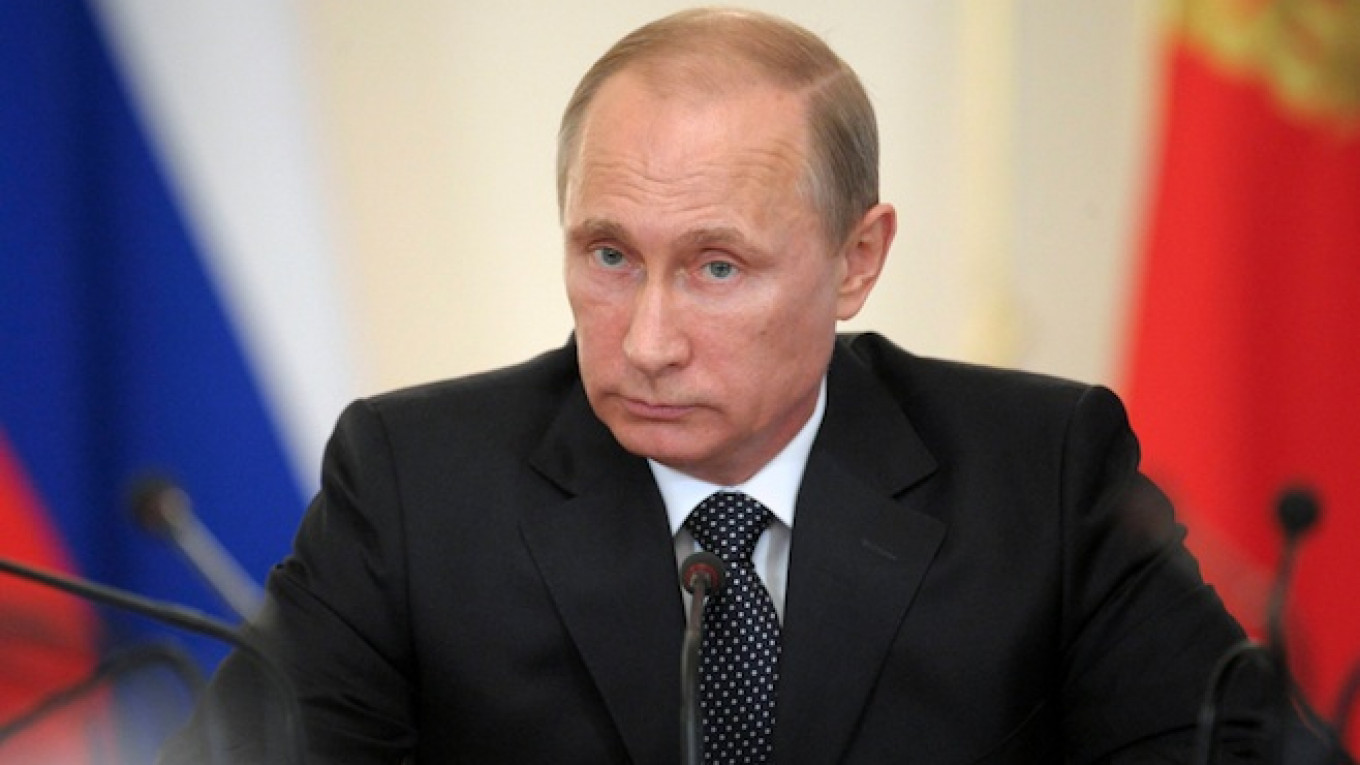Russian President Vladimir Putin accused Ukraine on Wednesday of forcing gas talks into a "dead end" by rejecting a price cut offer made amid a row threatening supplies to the rest of Europe.
As Kiev demanded contract changes to lower the highest prices in Europe for Russian gas supplies, Moscow also dug in its heels, suggesting its proposed price cut of about one-fifth to around $385 per 1,000 cubic meters was its final offer.
The dispute is part of a broader stand-off between Ukraine and its former Soviet master, as Kiev's new West-leaning leadership struggles to contain a pro-Russian separatist rebellion in its eastern provinces.
Arguments over what Russia charges for its gas have rumbled on for years and led to supply cut-offs in 2006 and 2009.
Putin, meeting his government outside Moscow, said Russia had offered a discount of $100 per 1,000 cubic meters by removing an export duty. That would roughly bring it in line with the price paid by other European consumers.
"The reduction is too little for our Ukrainian partners, they want more, although it's not clear on what basis," he said.
"If this is the case, then it seems that the issue is being driven into a dead end."
The latest crisis flared with the overthrow of Ukraine's Moscow-leaning president Viktor Yanukovych in February, after which Moscow annexed its neighbor's Crimea region and nearly doubled the price Kiev has to pay for gas.
Russian gas exporter Gazprom had been charging a preferential rate as part of Moscow's effort to keep Ukraine from drifting into the orbit of the European Union.
"Russian Traps"
Earlier Wednesday, Ukrainian Prime Minister Arseniy Yatsenyuk made clear at a cabinet meeting that Kiev rejected Russia's offer to lower gas prices by removing the export duty, a measure that would not be written into the contract and was therefore at the whim of Moscow.
"I want to say that we know these Russian traps. The discount is set by the Russian government and cancelled by the Russian government," he said.
Ukraine instead wants to change a 2009 contract that locked it into buying a set volume of gas, whether it needs it or not, at $485 per 1,000 cubic meters. The average gas price for Europe was about $387 per 1,000 cubic meters last year but Gazprom has given no current figure.
The European Commission, the EU executive, has taken on the role of brokering trilateral price talks, but five rounds have failed to secure a deal.
See also: Ukraine Insists on Bigger Gas Price Cut From Russia
A Message from The Moscow Times:
Dear readers,
We are facing unprecedented challenges. Russia's Prosecutor General's Office has designated The Moscow Times as an "undesirable" organization, criminalizing our work and putting our staff at risk of prosecution. This follows our earlier unjust labeling as a "foreign agent."
These actions are direct attempts to silence independent journalism in Russia. The authorities claim our work "discredits the decisions of the Russian leadership." We see things differently: we strive to provide accurate, unbiased reporting on Russia.
We, the journalists of The Moscow Times, refuse to be silenced. But to continue our work, we need your help.
Your support, no matter how small, makes a world of difference. If you can, please support us monthly starting from just $2. It's quick to set up, and every contribution makes a significant impact.
By supporting The Moscow Times, you're defending open, independent journalism in the face of repression. Thank you for standing with us.
Remind me later.






